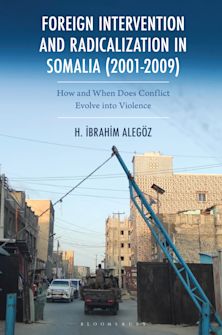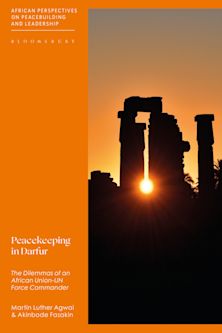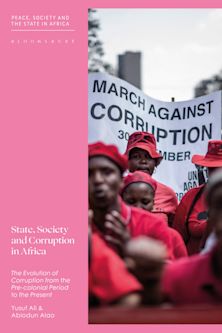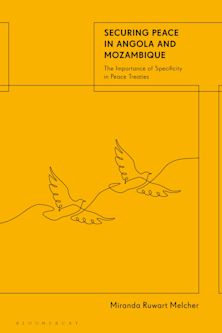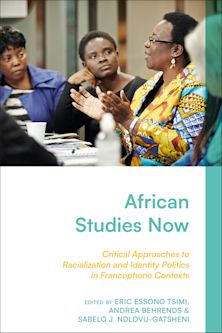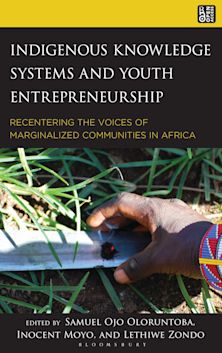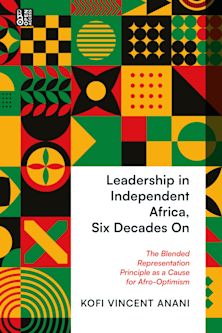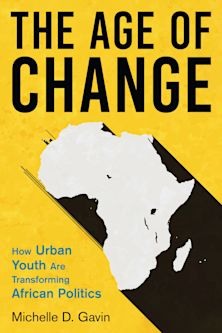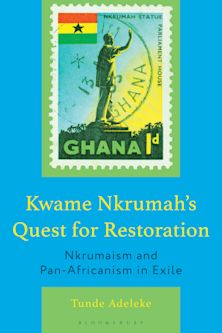- Home
- ACADEMIC
- Politics & International Relations
- African Politics
- Cannibalism Myths, Empire, and Identity in Colonial Sierra Leone
Cannibalism Myths, Empire, and Identity in Colonial Sierra Leone
Cannibalism Myths, Empire, and Identity in Colonial Sierra Leone
This product is usually dispatched within 1 week
- Delivery and returns info
-
Free US delivery on orders $35 or over
You must sign in to add this item to your wishlist. Please sign in or create an account
Description
In 1913, Sierra Leone bore witness to a Special Court convened to hear cases of cannibalism. Described as “Human Leopards,” those accused of ritually killing and eating others were associated with a criminal group, and in the wake of the cases, many accused and convicted Human Leopards were executed or exiled from the colony. Contemporary writers described these events in the rhetoric of the “civilized world” triumphing over the “barbaric,” and newspapers of the period wallowed in the lurid idea of shapeshifting cannibals lurking to murder and devour the innocent. Cannibalism Myths, Empire, and Identity in Colonial Sierra Leone by Katrina HB Keefer offers new perspectives on these trials, delving closely into the transcripts of the 1913 Human Leopard cases. Through careful analysis of evidence and modern scholarship, it’s clear that cannibalism was never at play in these murder cases, and Keefer presents a complex web of judicial overreach, colonial ambitions, xenophobic fears, socio-political turmoil, animals whose habitats were being encroached upon, and powerful initiation societies.
Table of Contents
Introduction: Understanding the Leopard
Chapter 1: A Sketch of Sierra Leone and the Context for the Cases
Chapter 2: What Kind of Leopards Were They?
Chapter 3: Cannibalism as European Nightmare and as Spiritual Consumption
Chapter 4: The Court at Gbangbama
Chapter 5: Human Leopards and Poro
Chapter 6: Body Marking, the Orthography of the Skin, and Colonial Assumptions
Chapter 7: Oath-taking, Medicines, and the Colonial Law
Chapter 8: The Special Commission Court Cases Concerning Human Leopards
Conclusion: Regional Tensions on Trial
Appendix: The People
Bibliography
About the Author
Product details
| Published | Dec 04 2024 |
|---|---|
| Format | Hardback |
| Edition | 1st |
| Extent | 192 |
| ISBN | 9781666965780 |
| Imprint | Lexington Books |
| Illustrations | 2 BW Illustrations, 7 BW Photos |
| Dimensions | 9 x 6 inches |
| Publisher | Bloomsbury Publishing |
About the contributors
Reviews
-
Katrina HB Keefer dives into a neglected topic with an ability and depth that defies belief. The way she brings back from oblivion the life stories of her subjects is commendable and should serve as a template for future studies of this kind.
Manuel Barcia, University of Leeds
-
Keefer’s account of some intriguing ‘cannibal’ court cases makes an exciting contribution to several fields of history.
Emma Christopher, University of South Wales
-
Keefer’s study uniquely explores the Special Commission Court of 1913 through the lens of slavery and other forms of unfree labour. In a detective-like manner, she carefully reconstructs the 1913 Special Commission Court cases, the lives of its primary actors, and the world in which they lived.
Trina Leah Hogg, Oregon State Unversity
-
[Katerina] Keefer's work complements a wider historiography on secret societies and their run-ins with colonial anxieties about occult practices across West Africa. What is refreshing and useful about Keefer's contribution is the concision with which she elaborates the range of issues associated with these societies in colonial contexts, making this work particularly useful for nonexperts and students ... Recommended. [for] lower-division undergraduates through faculty.
CHOICE

ONLINE RESOURCES
Bloomsbury Collections
This book is available on Bloomsbury Collections where your library has access.












